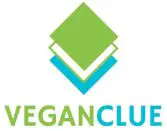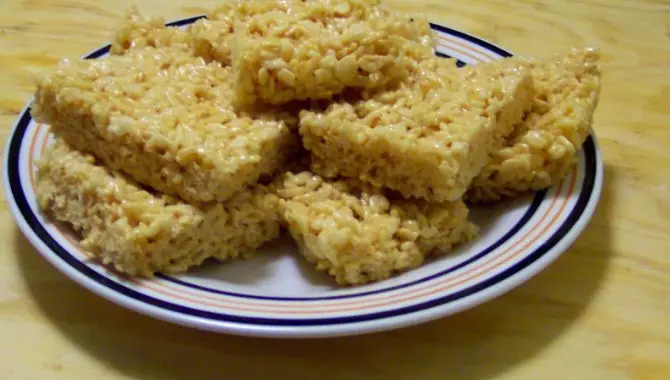Going vegan can be a big step. One of the most challenging aspects of the vegan lifestyle is uncovering all the additives and hidden ingredients that turn an ostensibly vegetable-based food into one that’s unacceptable for a vegan diet. Sometimes this means rejecting a food altogether; fortunately, in most cases, it’s just a matter of switching brands. This is often the case with breakfast cereals. You’d think that cereals, being made from grains and maybe a little coloring material or sugar, would be naturally vegan. Unfortunately, this isn’t always the case. It’s important to check the ingredients of everything you buy.
Are Rice Krispies vegan? The brand “Rice Krispies”, made by Kellogg, is not vegan. It is fortified with vitamin D3 from animal sources. You can find other crisped rice cereals that do not have any animal ingredients. Some of these come from vegan-aligned companies while others are produced by mainstream food manufacturers.
You’ve landed on this page because you have a lot of questions relating to your vegan lifestyle and the foods you enjoy.
- Is your favorite breakfast cereal really vegan?
- What ingredients can make a cereal non-vegan?
- What alternatives are on offer for vegan households?
- How can you determine which cereals are suitable for vegans?
- Can you find vegan versions of Rice Krispies and similar brands?
Fortunately, you’ve come to the right place. We have the answers you’re looking for. Keep reading to find out more about vegan cereals and breakfast foods.
Are Rice Krispies Vegan?
Unfortunately, Kellogg’s Rice Krispies are not vegan food. This puzzles many new vegans: after all, puffed rice cereals are made from grains of rice, subjected to heat until they pop like popcorn. Turning this food into a vegan breakfast should simply be a matter of swapping cow’s milk for soy, oat or nut-milk. How can rice possibly be non-vegan?
It comes down to the vitamins added to the cereal during production. Like many bowls of cereal, Rice Krispies are fortified with extra vitamins to make the cereal more nourishing and healthy. Unfortunately, these vitamins include animal-derived vitamin D3. This makes them unsuitable for strict vegan diets. Although those who are vegans purely for health reasons may choose to ignore vitamins for the purposes of their diet, vegans who choose their lifestyle as an ethical commitment will want to avoid this particular cereal.
Luckily, Kellogg’s Rice Krispies are not the only crisped rice cereal out there. You can still enjoy the snap, crackle and pop of puffed rice at breakfast-time — just make sure you’re pouring your almond milk onto one of the tasty alternatives to Rice Krispies with a K. Funnily enough, this does include at least one Kellogg-branded rice cereal: the company’s gluten-free organic puffed rice is free from D3 and safe for vegans to eat.
Why isn’t vitamin D3 vegan? Well, it comes down to the way the vitamin is produced. Vitamin D3 is usually made from lanolin. More commonly known as wool fat, lanolin is a substance produced by sheep to keep their wool water-resistant and in good condition. Lanolin is heavily used by the food industry because it contains 7-dehydrocholesterol, a compound used to synthesize vitamin D3. Clearly, as an animal ingredient, wool fat is absolutely not allowable for the ethical vegan.
Recent research has delivered vitamin D3 derived from lichens, a plant-like organism; however, making vitamin D3 in commercial quantities in this way is still tricky and not all brands use it at the moment. You can often find lichen-derived D3 in supplements but it’s not widely in use by the food industry just yet. Some cereal manufacturers are making the switch to vegan D3; others are switching to vitamin D2, which is made from vegetable derivatives. Still, others are omitting vitamin D altogether until a reliable and inexpensive vegetable source comes along.
As a vegan, you still have plenty of cereal options. More and more companies are making their products vegan-friendly. This includes large supermarket chains, such as Lidl and Asda in the UK, and Target and Walmart in the US. Check the shelves on your next shopping trip and you may be pleasantly surprised. Many of their own brand cereals are now vegan. You will still need to check that packaging carefully before you buy, as not all cereals will be vegan and some may change their ingredients in the future. If the ingredient change was recent, you may also encounter older stock in some locations that still contain non-vegan vitamin D3.
Other factors to consider
Vitamin D3 isn’t the only animal-derived ingredient that you might find in a rice cereal. While plain rice cereals are unlikely to contain animal ingredients aside from D3, flavored variants may contain animal ingredients. Whey is very commonly added to cereals, especially chocolate-flavored cereals.
If you’re not 100 percent sure what’s in a product, consult the ingredients and see if any non-vegan constituents are mentioned. If you’re still unsure, you can find out more about the product’s contents by checking the company’s website. You can also contact the manufacturer directly to ask whether a particular product is vegan-friendly.
Getting in touch with a company to ask about vegan ingredients has two benefits. Firstly, you’ll have up-to-date information on the products you buy. Secondly, your query will make the company aware that there’s a demand for vegan versions of their products and encourage them to expand their range.
As a vegan, you may want to look a little further than the ingredients of a specific product. While the product itself might be vegan, it’s very likely that the food manufacturer makes other products that use animal ingredients.
If you’re a vegan for health reasons, this probably isn’t really a concern. If your motivation for becoming a vegan is primarily ethical, however, you may decide to shop more carefully and avoid giving your money to companies that trade in animal products.
Not all vegans decide to do this, of course — it can be a rather onerous commitment. For some vegans, though, the definition “vegan” may only include products made by companies that are dedicated to avoiding animal exploitation.
Are Rice Krispies squares vegan?
Rice Krispies squares are an iconic treat. They’re very easy to make and are a popular recipe for children. If you’re a vegan, you can still enjoy a similar treat — you just need to make some vegan recipe substitutions.
First, you can’t use name-brand Rice Krispies because they contain animal ingredients. You will have to substitute another crispy rice cereal with a similar texture and no D3. As we’ve seen, this is not too hard as there are plenty of vegan rice cereals on the market.
Secondly, the traditional “glue” used to make the squares consists of melted marshmallows and butter. You will have to use a vegetable substitute in place of butter; almond or another nut butter works well here and is very tasty. Choose a smooth butter if you want your squares to be closer to the original recipe, or a chunky nut-butter if you want a little extra crunch. Unsalted is best.
Next are the marshmallows. Most commercial brands of marshmallows are made with gelatin, making them unsuitable for vegan recipes. You will have to find vegan marshmallows and use those instead, or omit marshmallows altogether and use something else. Maple syrup, with its smooth and pleasant flavor, is a great addition. You can also use golden syrup or syrup with vanilla flavoring.
Melt 1/3 of a cup of nut butter and the same amount of your chosen syrup together in a pan, stirring over a very low heat until they’re completely blended. You can also use the microwave for this step, warming your mixture in 30-second increments and stirring between each session. When everything is blended, gently fold in 3 cups of your favorite vegan crisped rice cereal and mix thoroughly. Pour the mixture into a greased baking tray and leave to set. Once it’s cooled, cut into squares and enjoy.
Are other vitamin-fortified cereals vegan?
Most breakfast cereals nowadays are fortified with vitamins. This doesn’t necessarily mean that they’re not vegan, just that you’ll need to check the ingredients for D3 and other animal-derived products. It’s common for manufacturers to add whey and other animal ingredients to some of their cereals. Keep your eye out for those too.
It’s worth noting that most other vitamins used to fortify breakfast cereals are vegetable-derived and vegan-safe. The only one to look out for is D3. Fortified breakfast cereals, in general, are a great boon to the general public in terms of nutrition. By the addition of just a little extra of certain crucial vitamins to cereal products, nutritional problems in the population have been significantly reduced. Iron and B vitamins in breakfast cereals help to prevent anemia, while folic acid helps prevent birth defects. The practice of fortification has been a win-win, with improved sales for companies and better nutrition for consumers.
Modern diets are significantly better now than they were when vitamins were first added to food. People are less in need of supplementation than they used to be. Even so, fortified cereals are still produced because they’ve been shown to be so valuable to public health. You can safely consume fortified cereals as a vegan, provided you avoid animal-derived vitamin D.
It’s also important to keep in mind that if you’re not getting vitamin D3 from your fortified cereal anymore, you might need to look into supplementation from other sources. People in the northern hemisphere are particularly vulnerable to vitamin D deficiencies, as they’re exposed to less sunshine. There are plenty of vitamin D3 products now that are safe for vegans to use, made with lichen-derived D3 and other non-animal ingredients.
Welcome to VeganClue - My name is Robert Van De Ville and together with my team we spent hundreds of hours researching the most relevant topics for Vegans and non yet Vegans. Are you looking for more information about Veganism, animal welfare, diet, health, and environmental benefits of the Vegan lifestyle? You are in the right place! Enjoy the site.

